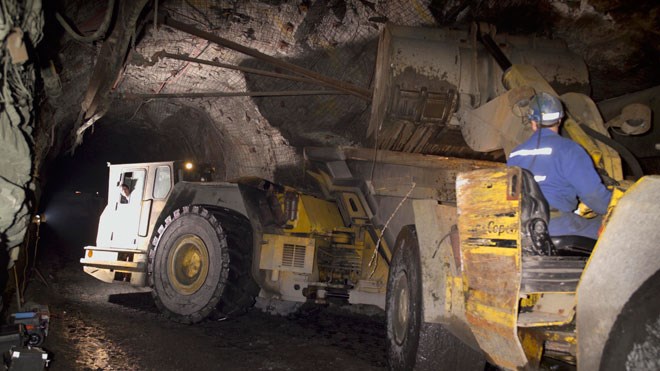In a year that has seen two mine closures in Greater Sudbury, the low price of nickel has also resulted in a significant downturn in jobs available for the city's mining supply and services sector, says the Sudbury Area Mining Supply and Service Association (SAMSSA).
SAMSSA executive director Dick DeStefano said his members have been mum on the impact low nickel prices has had on their businesses, but said it has definitely resulted in fewer contracts with larger firms like Vale and Glencore.
Nickel hit a multi-year low of US$3.75 a pound Monday, and climbed slightly Tuesday to $3.92 a pound by 3:50 p.m.
KGHM placed its McCreedy West Mine into care and maintenance on Oct. 1, due to low nickel prices, which were around US$4.45 a pound at the time.
The small mine's closure displaced 25 United Steelworkers members, who were able to apply for jobs at the nearby Morrison Mine, which has more copper than nickel.
But 15 workers at Morrison Mine also lost their jobs.
And in August 2015 First Nickel shut down its Lockerby Mine, after losing $33.1 million in the first quarter of 2015.
The company also said low nickel prices were to blame for the mine closure.
Jean-Charles Cachon, a professor with Laurentian University's faculty of management, said current low metal prices are due to a slowdown in China's growth, and an over-supply of most metals, including nickel.
“There has been a scaling down of projects that we have seen for at least two years now,” Cachon said. “It has created a situation where the larger firms have reduced their purchases.”
But Cachon said large mining companies like Glencore and Vale remain very profitable, and in Sudbury, metals such as copper and platinum group elements balance out the especially weak prices for nickel.
“Fortunately copper is holding its own, and we produce almost as much copper as nickel in Sudbury,” he said.
Cachon added that with around one billion people in developing countries like China and India expected to reach middle-class income levels, demand for all metals should pick up.
“Prices will start climbing again,” he said.
As for Sudbury's overall economy, Cachon said that thanks to diversification, the city is much less dependent on the mining sector than it was in the 1970s, when almost 35 per cent of local jobs were in the mining sector.
Today, he said, sectors such as health care, education, government services and retail, make up a much greater part of the city's economy.
Join Sudbury.com+
- Messages
- Post a Listing
- Your Listings
- Your Profile
- Your Subscriptions
- Your Likes
- Your Business
- Support Local News
- Payment History
Sudbury.com+ members
Already a +member?
Not a +member?
Sign up for a Sudbury.com+ account for instant access to upcoming contests, local offers, auctions and so much more.
